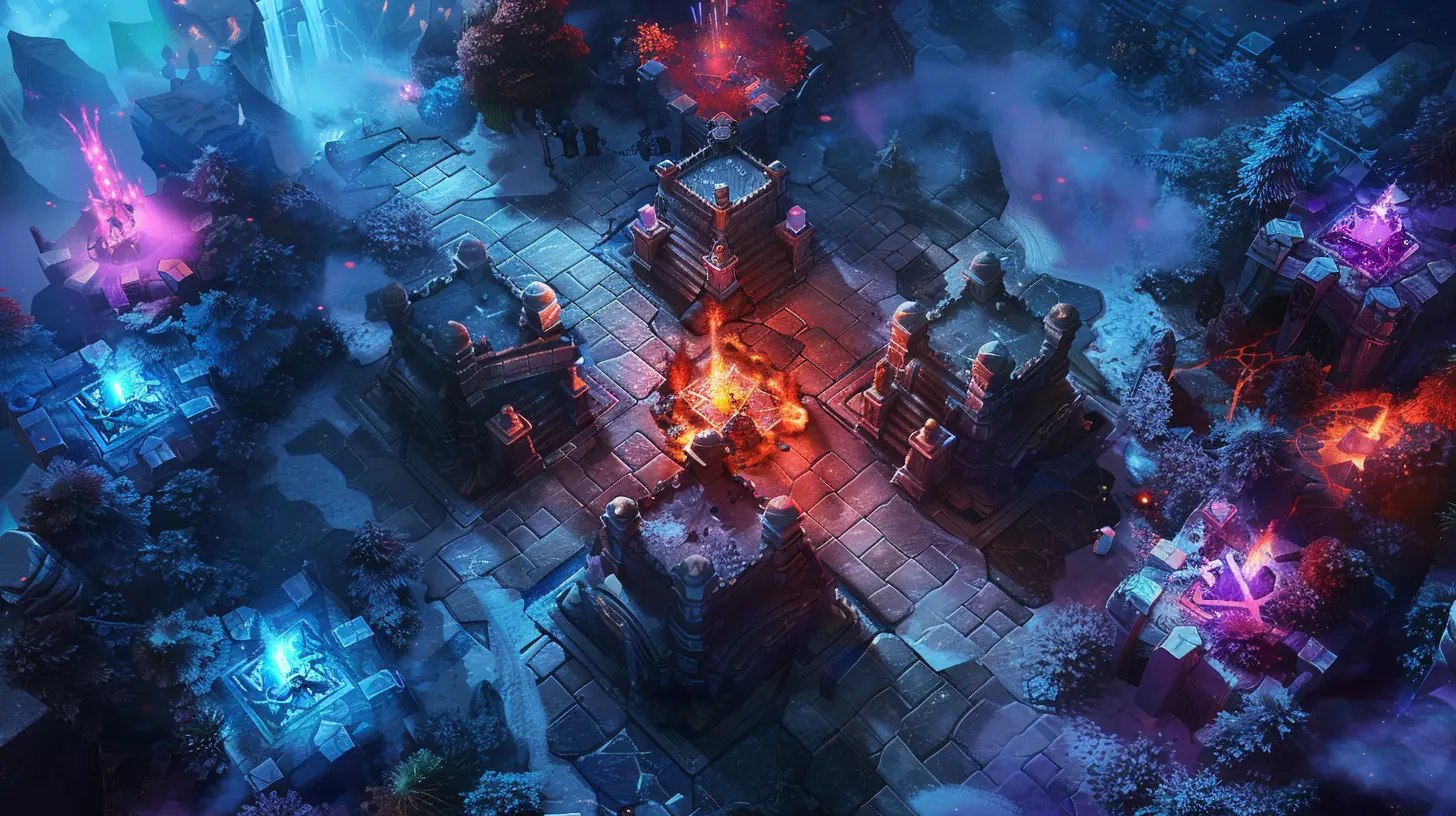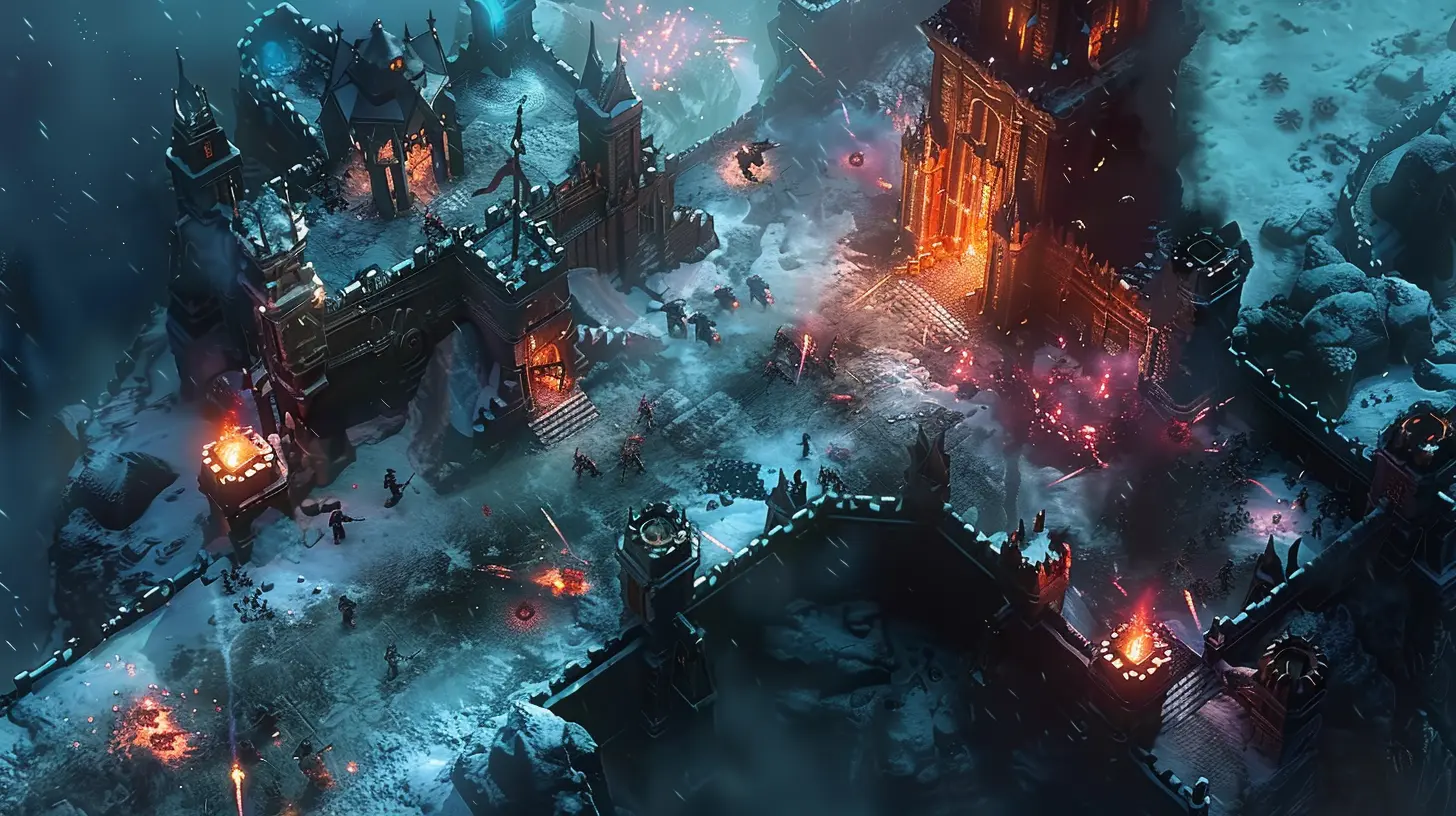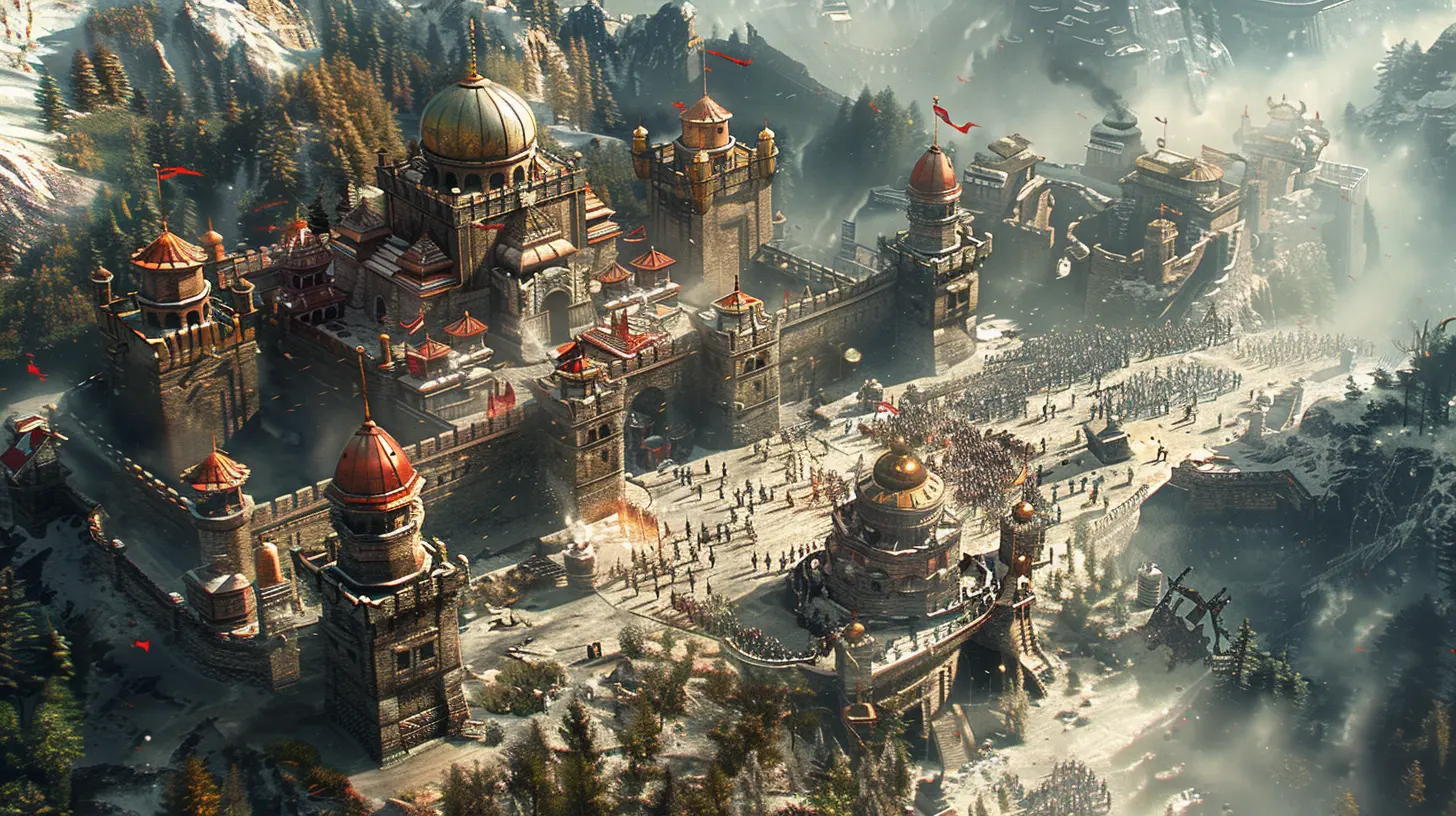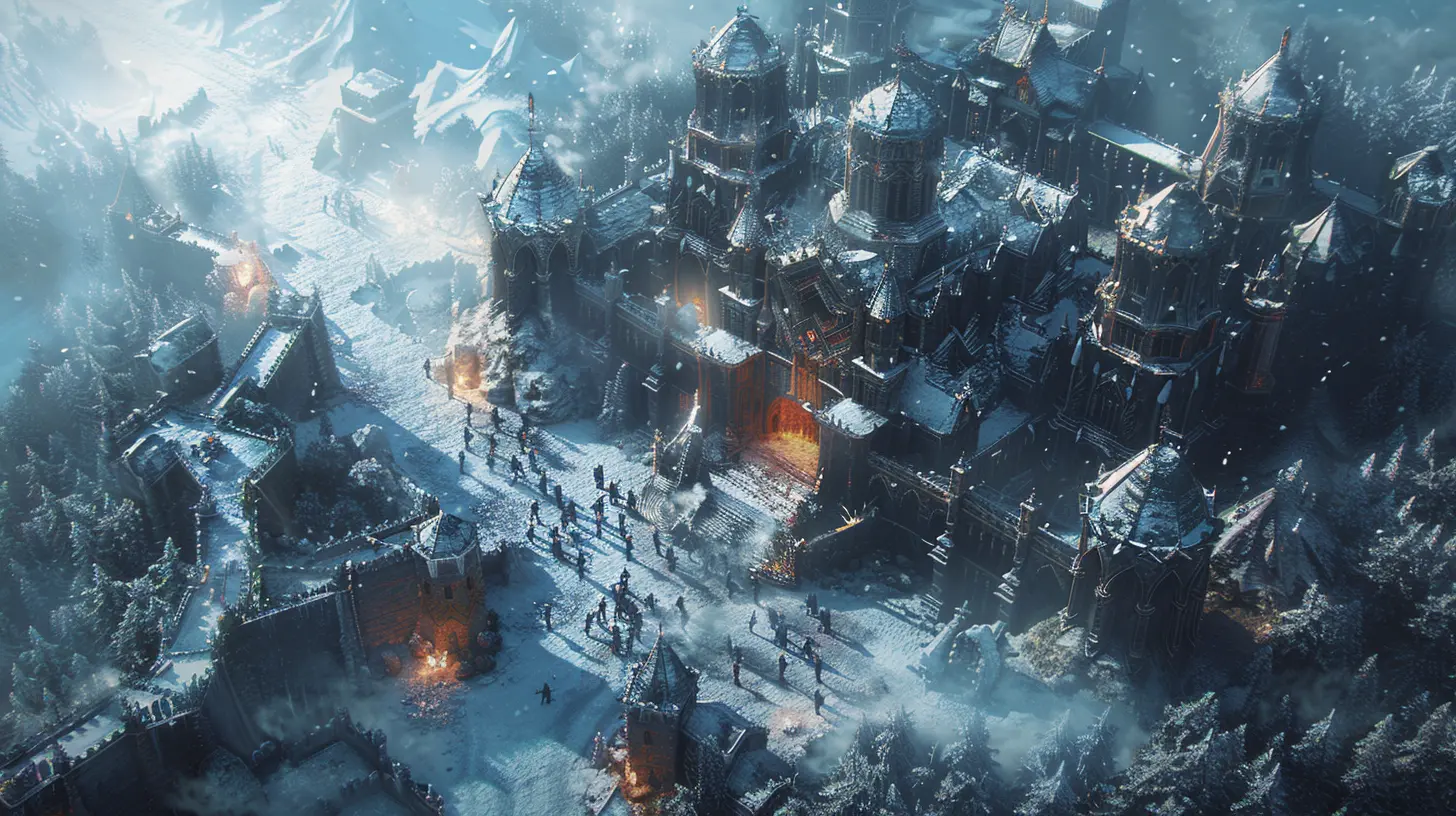How to Keep Your Cool Under Pressure in High-Stakes RTS Matches
11 June 2025
Let’s be real—Real-Time Strategy (RTS) games can feel like trying to defuse a bomb while juggling flaming swords. You’re managing resources, commanding units, scoping out your opponent’s moves, and making split-second decisions—all at once. And when it’s a high-stakes match, like a ranked game or a tournament? Whew. The pressure can be enough to make your brain short-circuit.
So, how do top players keep calm when everything’s going sideways? The good news: It’s not magic. It’s a mix of mindset, preparation, and a little bit of mental trickery. This guide will walk you through how to stay cool under pressure so you can perform like a pro when it matters most.
Why Pressure Hits So Hard in RTS Games
Before we dive into the solutions, let's understand the beast we're trying to tame.RTS games like StarCraft II, Age of Empires IV, or Company of Heroes aren’t just about fast clicking—they demand quick thinking and multitasking mastery. Now throw in the adrenaline of ranked play or a tense 1v1 scenario, and suddenly, even simple actions start feeling like brain surgery.
You’ve probably been there: your hands start shaking, you forget your build order, or worse—you panic and throw the game because of one bad call. Pressure messes with our ability to think clearly and execute precisely. But if you're aware of why it happens, you can start building your mental armor.
Step 1: Control What You Can (Preparation Is Power)
You can't predict your opponent’s every move, but you can absolutely control your own readiness. Confidence reduces stress. Here’s how to prep like a boss:Have a Solid Game Plan
You wouldn’t go into battle without a strategy, right?- Learn your build orders until they’re muscle memory.
- Practice your opening moves so your hands just “know” what to do.
- Have a backup strategy if your early-game plan goes wrong.
When you’ve got a playbook in your head, your brain doesn’t have to scramble for answers under pressure—it already knows what to do.
Master the Fundamentals
It’s tempting to focus on flashy micro or cheese strats, but the real key is solid fundamentals:- Consistent macro (spending your resources efficiently)
- Keeping your economy running
- Scouting effectively
- Positioning your army intelligently
Strong fundamentals act like a safety net. Even if things go sideways, your core gameplay keeps you grounded.
Step 2: Reframe the Pressure
Pressure is just adrenaline with a bad reputation. Seriously.Instead of seeing pressure as a threat, try looking at it as a performance enhancer. Top athletes and esports pros use this trick all the time.
Flip the Script
Tell yourself:> “I’m excited to crush this match” instead of “I’m nervous about messing up.”
Sounds cheesy, but it works. Your body reacts the same way whether you’re excited or scared, so why not take the positive route?
Treat Each Match as Practice
Even if it’s ranked, pretend it’s just another practice run. This mindset keeps your expectations in check. Ironically, focusing less on "I have to win this" often leads to better performance.
Step 3: Breathe and Reset—In-Game and IRL
When your brain starts short-circuiting, the fastest fix is also the simplest: breathe.Use Breathing as a Reset Button
Try this mid-match hack:1. Take 3 deep breaths.
2. Roll your shoulders for a second.
3. Refocus on your current objective (like macro or scouting).
Even five seconds of this can reset your focus. You’d be amazed how something so small can stop a panic spiral.
Build Mental Checkpoints
During the match, ask yourself questions like:- “Am I spending my money?”
- “Am I producing units?”
- “Did I scout recently?”
These act like mini-reset buttons to keep your brain tied to the game’s priorities rather than spiraling into stress.
Step 4: Don’t Fear Mistakes—Embrace Them
Here’s a fun fact: You’re going to make mistakes. Lots of them. Even the pros misclick, forget upgrades, or miss crucial timing windows.Learn to Laugh at the Dumb Stuff
Ever accidentally built five Barracks instead of one? Or tried to micro a group of peasants? We’ve all been there. Laugh it off and move on.Taking the game seriously is good—but taking yourself too seriously? That’s a trap. The ability to shrug off mistakes makes you mentally bulletproof.
Review, Don’t Regret
After the match, do a quick replay review—not to beat yourself up—but to learn what went wrong. Ask:- At what moment did I lose control?
- Was there a decision I panicked on?
- What would I do differently next time?
Growth comes from reflection, not regret.
Step 5: Train Like a Mental Athlete
Keeping your cool isn’t just about in-game experience—it’s a muscle you can train, just like your APM.Simulate Pressure in Practice
Try this challenge: Play a match where you intentionally create high-stress scenarios. Maybe you start late, go random, or limit your vision. The point is to practice recovering under stress.The more you face chaos, the better you get at handling it when it counts.
Build Mental Stamina
Play longer sessions where you stay focused without breaks. Over time, your brain builds stamina, just like your fingers increase APM. But don’t overdo it—mental fatigue will only backfire if you go too hard too fast.Step 6: Set a Post-Game Cool Down Ritual
After a blood-pumping RTS match, you can't just jump into another game like nothing happened—especially if things got heated.Step Away, Then Reset
- Stretch or walk around.- Drink some water.
- Shake out your hands.
Taking 5–10 minutes to decompress resets your emotional state. Going straight from a loss into another ranked game is like driving blindfolded—it rarely ends well.
Step 7: Build a Healthy Relationship with the Ladder
Ranked anxiety is a real thing. If you treat every ladder game like it’s life-or-death, your brain's going to be in emergency mode 24/7.Redefine “Winning”
Winning doesn’t always mean victory on the scoreboard. It can also mean:- Executing your build correctly
- Staying calm during a close fight
- Not tilting after a mistake
If you measure success by improvement, not just W’s and L’s, you’ll grow faster and feel better.
Respect the Grind
Climbing the ladder is a grind. Some days you soar, some days you tank. But every match teaches you something—as long as you’re open to learning.Think of ranked as a dojo, not an exam. You’re there to train, not to prove yourself.
Bonus: Tools and Habits to Help You Stay Chill
Let’s bring it all together. These tools and habits can help you stay sharp under stress:Noise-Cancelling Headphones
Keep distractions out and focus locked in. Helps especially if you’re prone to tilt from external noise.Comfortable Setup
You wouldn’t run a marathon in dress shoes. Make sure your chair, mouse, and keyboard setup helps you relax, not tense up.Play with a Buddy
Even if it’s 1v1, having a friend to chat with post-match can normalize emotions. You’ll realize other people go through the same stuff.Use In-Game Hotkey Reminders
Some RTS games let you set visual cues or hotkeys for key events (like reminding you to scout at 3 minutes). These tiny nudges keep your brain on track.Final Thoughts: Pressure Is a Privilege
Pressure means you care. It means you’ve put time into improving. But it shouldn’t paralyze you.The truth? You’re going to mess up. You’ll lose matches. You’ll have moments when your brain feels like it’s full of spaghetti.
But those moments are where growth happens. When you learn to stay cool, deal with setbacks, and bounce back stronger, that’s when you really level up—not just in the game, but in life too.
So the next time you feel the nerves creeping in during a high-stakes RTS battle, smile a little. That pressure? That’s your brain telling you something awesome is about to happen.
all images in this post were generated using AI tools
Category:
Real Time StrategyAuthor:

Emery Larsen
Discussion
rate this article
3 comments
Marley McFee
Great article! High-stakes RTS matches can be incredibly intense, and it’s completely normal to feel overwhelmed at times. Remember, it's okay to take a step back and breathe. Developing your skills takes time, and with practice, you'll learn to navigate the pressure. Keep pushing forward; you’ve got this!
June 14, 2025 at 4:44 AM

Emery Larsen
Thank you! I appreciate your encouraging words and reminder to take breaks. It’s all about growth and resilience!
Bellamy Cannon
Great insights! I'm intrigued by the psychological aspects of gaming under pressure. How do different strategies affect player performance in critical moments? Have any studies explored the balance between tactical decision-making and emotional control in high-stakes RTS matches? Would love to hear more!
June 13, 2025 at 4:35 AM

Emery Larsen
Thank you for your enthusiasm! Several studies highlight the importance of emotional control and tactical strategies in high-pressure gaming. Balancing quick decision-making with calmness can significantly impact performance. I’ll consider diving deeper into this in future articles!
Ezra McCullough
Great insights! I’m curious to see how these strategies can apply to other competitive games too.
June 11, 2025 at 3:44 PM

Emery Larsen
Thank you! Many of these strategies, like maintaining focus and managing stress, are applicable across various competitive games. Excited to explore that further!



